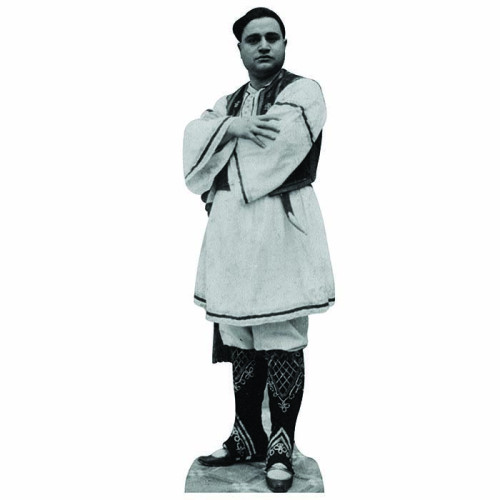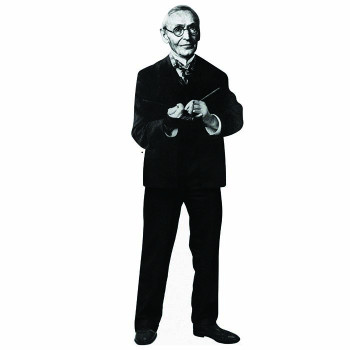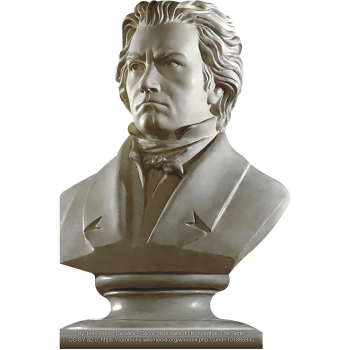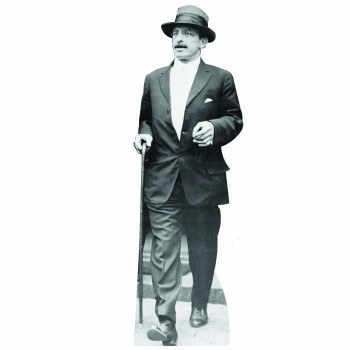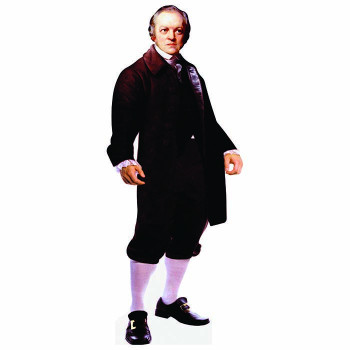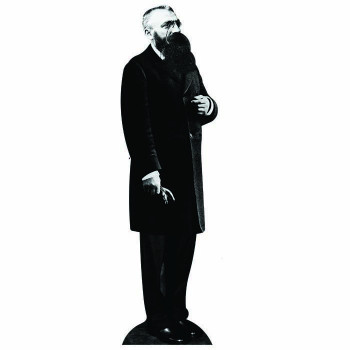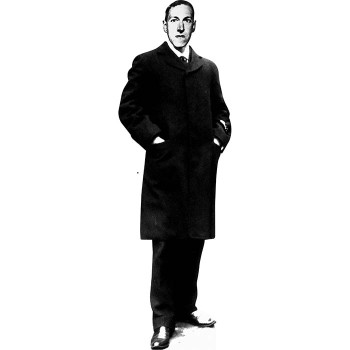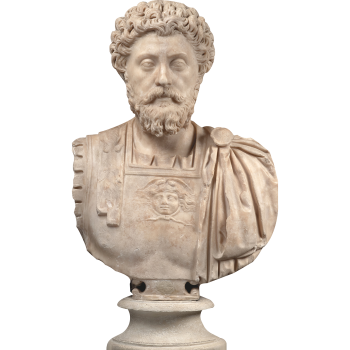BENIAMINO GIGLI CARDBOARD CUTOUT
-
$0.00
Available Options
67 inches. Our cardboard cutout of Beniamino Gigli. All cardboard cutouts come folded and have an easel attached to the back to be self-standing. Items are printed and produced to order. Printing and processing takes up to 5 business days plus shipping time.
Introduction to Beniamino Gigli
Celebrate the legacy of one of the greatest tenors of the 20th century with our lifesize cardboard cutout of Beniamino Gigli. Perfect for musical displays, educational events, or as an inspiring addition to your home or office, this cutout captures the powerful and expressive presence of Beniamino Gigli, reflecting his profound impact on opera and classical music.
Background of Beniamino Gigli
Beniamino Gigli was born on March 20, 1890, in Recanati, Italy. From an early age, he displayed a remarkable talent for singing. Encouraged by his family and local community, Gigli pursued formal vocal training, eventually studying at the Liceo Musicale in Rome. He made his operatic debut in 1914 in Rovigo as Enzo in "La Gioconda."
Gigli's career quickly gained momentum, and he made his debut at the prestigious La Scala in Milan in 1918, performing in the role of Faust. His exceptional vocal quality, characterized by its warm, rich timbre and emotional expressiveness, earned him acclaim and a devoted following. In 1920, Gigli made his debut at the Metropolitan Opera in New York, where he became one of the leading tenors of his generation.
Gigli's repertoire was extensive, covering a wide range of Italian and French operatic roles. He was particularly renowned for his interpretations of roles such as Rodolfo in Puccini's "La Bohème," Cavaradossi in "Tosca," and the title role in Verdi's "Rigoletto." His performances were celebrated for their emotional intensity, vocal purity, and technical mastery.
Throughout his career, Gigli performed with many of the world's leading opera companies and symphony orchestras, leaving an indelible mark on the world of opera. He was also a prolific recording artist, and his recordings remain popular among classical music enthusiasts.
Despite his success, Gigli's career faced challenges, particularly during World War II. His decision to perform in Italy during the war led to controversy, but his post-war performances and recordings helped to restore his international reputation. Gigli continued to perform and record until his retirement in the mid-1950s.
Beniamino Gigli passed away on November 30, 1957, in Rome. His legacy as one of the greatest tenors of all time continues to inspire and influence singers and music lovers around the world.
Cultural Impact of Beniamino Gigli
Beniamino Gigli's impact on opera and classical music is profound and enduring. As one of the most celebrated tenors of the 20th century, Gigli's performances set new standards for vocal excellence and emotional expression. His voice, characterized by its rich, warm timbre and impeccable technique, has made his recordings enduring classics.
Gigli's interpretations of iconic operatic roles are considered benchmarks in the operatic repertoire. His portrayal of Rodolfo in "La Bohème," Cavaradossi in "Tosca," and the Duke in "Rigoletto" remain definitive interpretations, admired for their emotional depth and vocal brilliance. Gigli's ability to convey the drama and pathos of these roles has left a lasting legacy in the world of opera.
In addition to his operatic achievements, Gigli was a prolific recording artist. His extensive discography includes operatic arias, art songs, and popular Italian songs, showcasing his versatility and broad appeal. Gigli's recordings have introduced generations of listeners to the beauty and power of operatic singing, and they continue to be cherished by classical music enthusiasts.
Gigli's influence extends beyond his recordings and performances. As a teacher and mentor, he inspired and guided many young singers, passing on his knowledge and passion for music. His legacy is also preserved through various honors and commemorations, including the Beniamino Gigli Prize, awarded to outstanding young tenors.
Gigli's contributions to opera and classical music are celebrated through numerous performances, recordings, and scholarly studies. His voice and artistry continue to resonate with audiences, ensuring that his legacy remains vibrant and relevant.
This cutout of Beniamino Gigli celebrates his remarkable contributions and enduring legacy as a master tenor. It serves as a tribute to his vocal brilliance, his impact on the development of opera, and his significant role in shaping the cultural heritage of classical music.
- Brand: Historical Cutouts
- Product Code:H79091
- Availability:In Stock
LEARN MORE ABOUT OUR AVAILABLE MATERIALS

LIFE SIZE HISTORICAL CUTOUTS
We have been the leading historical based cutout supplier for nearly 10 years. We have worked with many schools, museums, and colleges across the country to provide stunning graphics from hsitory. Historical Cutouts are available in 3 materials and come contour cut with an easel to be self standing. Click below to learn more about each material and our cutout process.
Learn More
LIFE SIZE HISTORICAL WALL DECALS
All of our historical figures are available as a life size wall decals. Vinyl wall decal orders come ready to apply with squeegie and instructions. Having trouble? Check out our how to youtube video. Our graphics are printed on tear resistant PhotoTex Vinyl using our high definition 4 color plus white printing process.
Learn More
HISTORICAL ACRYLIC CUTOUTS
Desktop Legends are a smaller version of our life size cutotus printed on 3/16th" acrylic. All of our historical cutouts are also available as a desktop legend. These acrylic statuettes come in two sizes, 8" and 12". If you would like to learn more please click below.
Learn MoreRELATED PRODUCTS
-
X Mega Mutant Men Man Optic Blast Super Hero Cardboard Cutout Standee Standup
Cardboard cutout of our X Mega Mutant Man. He has Optic Blast powers and has to wear special goggles..
Hermann Hesse Cardboard Cutout
70 x 23 inches. Our cardboard cutout of Hermann Hesse. All cardboard cutouts come folded and have an..
Leon Trotsky Cardboard Cutout
70 inches. Our cardboard cutout of Leon Trotsky. All cardboard cutouts come folded and have an easel..
Ludwig Van Beethoven Marble Bust Statue Head Cardboard Cutout Standee Standup
18x28 inch cardboard cutout of Beethoven the master maestro of classical music! He was a German pian..
Alexander Berkman Cardboard Cutout
72 x 23 inches. Our cardboard cutout of Alexander Berkman. All cardboard cutouts come folded and hav..
William Blake Cardboard Cutout
65 x 26 inches. Our cardboard cutout of William Blake. All cardboard cutouts come folded and have an..
Auguste Rodin Cardboard Cutout
70 x 20 inches. Our cardboard cutout of Auguste Rodin. All cardboard cutouts come folded and have an..
H.P. Lovecraft Cardboard Cutout
70 x 23 inches. Our cardboard cutout of H.P. Lovecraft. All cardboard cutouts come folded and have a..
Theodor Herzi Cardboard Cutout
66 inches. Our cardboard cutout of Theodor Herzi. All cardboard cutouts come folded and have an ease..
H10782 Marcus Aurelius Bust Marble Head Emperor Philosophy Cardboard Cutout Standup Standee
31x19 inch cutout. Aurelius is known is the last of the ?Five Good Emperors?, emperors who are shini..
Stack of Books Reading Multiple Colors Cardboard Cutout Standee Standup
72x46 inch cardboard cutout of a stack of multi-colored books for your home or event. There?s many w..
Joseph Ducreux Disregard Females Acquire Currency Meme Cardboard Cutout Standee Standup
Cardboard cutout of Joseph Ducreux, the painter who became a meme for his uncanny style reminiscent ..

